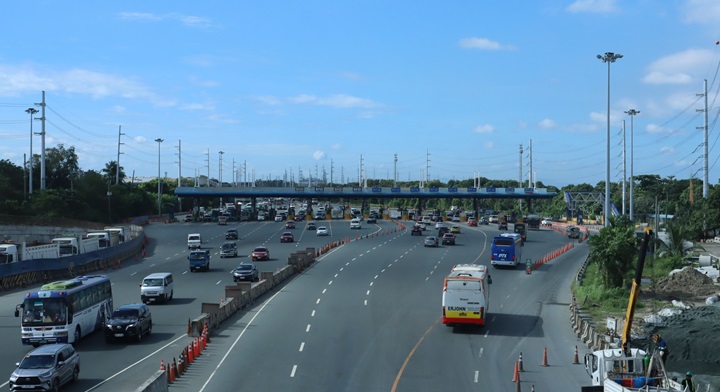
“We will fully implement a 30-day toll holiday in all exits of the Cavite Expressway (CAVITEX) for all vehicle classes, supporting the decision of the Toll Regulatory Board (TRB). This will help our motorists with the rising cost of fuel and inflation.” Thus declared Raul L. Ignacio, president and general manager of the Cavite Infrastructure Corporation (CIC).
CIC received the decision of TRB after prior consultation with the joint venture partners of the Cavite Expressway (CAVITEX) — namely CIC and the Philippine Reclamation Authority (PRA).
Implementing President Marcos’s directive. It will be recalled that President Ferdinand R. Marcos Jr. announced the granting of a toll holiday for all expressway segments under the stewardship and management of the Cavitex joint venture firm, in his speech at the recent inauguration of the CAVITEX C5 Link Segment 2,
“We welcome TRB’s policy and operational decision guided by the general directive of the President – which was arrived at after considering all the implementation details and systems preparation that must be in place,” Ignacio pointed out. “We commend TRB for the due deliberation that had taken place as part of our Regulator’s decision-making process,” he added.
Tollway segments covered. The tollway segments which will enjoy toll-free journeys for all vehicle classes are expressway exits in Kawit, Paranaque, C5 Link segment Merville and Taguig exits, and newly inaugurated Segment 2 (Sucat Interchange).
Transport industry sources say this suspension of toll collections covering all the exits will result in foregone toll revenues amounting to hundreds of millions of pesos. Transport experts said that, as industry logic dictates, expressway firms need toll receipts to pay lenders, recoup huge investments, assure road safety at all times, and pay operational and administrative personnel.
Aware of such effect on toll receipts, Ignacio nevertheless said: “We support the President’s decision and that of the TRB, so our motorists can enjoy the seamless expressway journeys brought about by modern tollway structures and systems.”
TRB commended amidst criticisms. TRB was earlier criticized by some quarters for a few days’ delay in issuing the directive for a toll holiday. CIC’s Ignacio cited the deliberateness and sober approach of TRB in finally arriving at a major decision. “There is no place for hasty decision making and action-taking for major policies and moves like this,” he added.
CIC is the private developer, builder, and financier of CAVITEX, in partnership with the Philippine Reclamation Authority (PRA) under a Public Private Partnership (PPP) agreement.
Prior consultation among partners. PPP advocates said that prior consultation among partners in a joint venture is essential to maintaining goodwill between and among these partners, citing productive results from various infrastructure projects.
Under this partnership concept, private firms continue to provide financing and expertise, while the government counterpart lends moral and administrative support. It would be ill-advised for one partner to take action unilaterally, without prior consultation with the other partner.
These industry experts also cited the crucial role of a regulator – like the TRB – in assuring that the PPP investment scheme works over the long term, and in safeguarding the well-being and welfare of stakeholders – specifically motorists and riders –benefiting from the joint venture.

